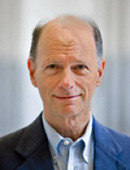During three decades of work on North Africa and the Middle East – as university professor, human rights researcher, consultant for international organizations, and independent academic researcher – I have specialized in anthropological theory (exploring the implications of encounters between people from different communities and the complexities of the notion of culture), human rights (directing Middle East research for Amnesty International and carrying out independent research on human rights), and cultural activity (focusing on visual representation, with a particular interest in Moroccan cinema). After doctoral dissertation research in Morocco, I received my Ph.D. in Anthropology from Yale University and was an assistant professor at Columbia University and Brooklyn College of the City University of New York during the 1970s. My first book, Moroccan Dialogues: Anthropology in Question (1982), was based on post-doctoral field research and made an early contribution to what in subsequent years became an extensive debate on anthropological writing. In 1978 I joined Amnesty International’s Secretariat in London as head of its Middle East Research Department. I managed a department of some 20 people, conducted research and wrote reports on human rights violations, participated in diplomatic and information-gathering missions, and helped to spread human rights awareness, mobilize public opinion, and coordinate action with other international organizations, with the ultimate aim of influencing governments to improve their human rights performance. I left Amnesty International in 1984 to undertake independent research on human rights ideas and activities in Morocco, Tunisia, and Egypt (with financial support from the Ford Foundation and the European Human Rights Foundation). Here, I entered into discussion with many people involved in Middle Eastern intellectual and political life, exploring with them the relationship between universal and particular values, divergent cultural interpretations of human rights, and how human rights ideas were being expressed and implemented in civil society. I presented this research in Arab Voices: the Human Rights Debate in the Middle East (1991) and subsequent writings on these issues.I moved to Tunisia in 1990 and over the following decade directed l’Institut de Recherches Appliquées, working on development projects across a wide variety of Third World countries and being particularly concerned with the dynamics of civil society. In 1998-1999 a research grant from the National Endowment for the Humanities enabled me to embark on a study of creative artists in North Africa and the Middle East. From this research I wrote Beyond Casablanca (2004), in which I focused on Moroccan cinema and its economic, political, and cultural context, viewing it as an example of creative activity in a Third World country.In 2001 I was appointed Professor of Anthropology at the American University in Cairo and continued to pursue my interest in the region’s cultural activity and the issue of cultural diversity. During this period I began to work on anthropological approaches to humor and this concern, combined with my earlier attention to creative activity and human rights, led me to the domain of Egyptian political cartooning. In studying how political cartooning expresses visions of society (one’s own and others) and provides insight into the public sphere, I will be exploring its artistic and humorous dimensions and seeing it as a journalistic practice related to freedom of expression.
